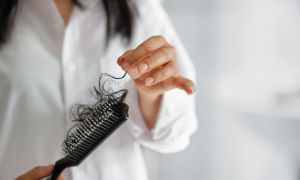Advertisement
The underside of the vagina has a little lip, the fourchette, which is the equivalent of the male frenulum, the single most important part of the penis. It’s the y-shaped junction of the head to the shaft, where the foreskin, if it’s intact, attaches to the shaft. It’s loaded with nerve endings. In some women it’s super sensitive and way worth the effort of finding. If you have given birth, this area may have torn or been cut, which may cause scarring and leave the area sensitive and sometimes sore.

More About this Book
The Good in Bed Guide to Female Orgasms
Want to learn how to achieve 487 different kinds of orgasms?If so, you’re reading the wrong guidebook. Despite what many in the media would have you believe, there’s no such thing as a rainbow...
Continue Learning about Women's Health
Important: This content reflects information from various individuals and organizations and may offer alternative or opposing points of view. It should not be used for medical advice, diagnosis or treatment. As always, you should consult with your healthcare provider about your specific health needs.




